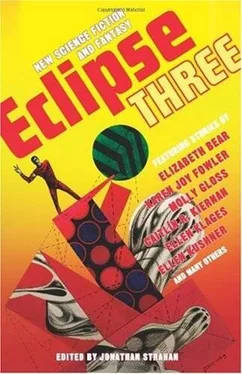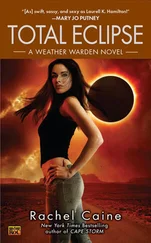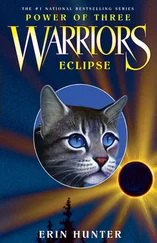"Ah, such peace!" the painter said quietly, which he may have meant as an answer.
In the early part of August, Rousseau came to Marie-Lucien's door unexpectedly-it was morning, and Marie-Lucien was still drinking his terrible coffee, still wearing the rumpled clothes he had slept in. The painter took hold of his arm and said, "Le Ménagerie! Best seen at night when the animals are at their most alert, but unfortunately open only in the daylight. Ten centimes and you're in." Marie-Lucien attempted to refuse. It was one thing, their nightly strolls, the two not-quite-old men leaning into fences, peering at trees and flowering shrubs in dark public parks and private gardens; but the daylight hours he intended still to keep for his own use, which was not grieving, as his friends had supposed, but a prolonged, expectant waiting for his own death.
Rousseau, of course, would not be put off. He had a long-established morning practice of strolling through one or another of his favorite amusement parks, and he had made up his mind to share that pleasure with Marie-Lucien. Shortly, they were out on the lively daytime streets, and Rousseau, brisk with morning energy, led the way to the Zoological Gardens, where he spent a good long while studying a mangy lion rocking restlessly in a space too small to accommodate pacing; and kinkajou monkeys and gibbon apes quietly pining in their cages. None of this was of much interest to Marie-Lucien, or only insofar as to strengthen his old opinion that he lived in a brutal, godless universe. He stood back from the animal pens, shifting his weight lionlike in anxious boredom.
When finally they left the zoo, Rousseau insisted they must visit the Palmarium, and the Orangerie, as well; and inside those hothouses, Marie-Lucien felt as if he had slipped once again into a dream. Confronted with a spectacle of perpetual novelty-huge Paulownia trees, tropical palms, mango and pineapple trees, thick-stalked grasses taller than any man-he seemed to recognize everything, to rediscover it all in his memories. It struck him suddenly that the foliage under the translucent glass vault was the most exalted green he had ever seen outside Rousseau's jungle canvases, and when he said this to the painter-a bit of mild praise coming rather late in their acquaintance-Rousseau replied offhandedly, "I don't seek and invent, my dear, I only find and discover."
"Well then, it seems to me, you find and discover strangeness above all," Marie-Lucien said, which the painter took as true praise and which provoked in him a pleased laugh.
In the weeks that followed, because Marie-Lucien had little interest in visiting the Zoo or the Monkey Palace again, they confined their morning walks to the Orangerie, the Palmarium and the Botanical Gardens, which Rousseau said was not an inconvenience. The animals in the menagerie were, after all, not suitable studies for his art-always either reclining or sitting in a torpor-and his genuine models (his expression guileless as a child's) were the wild ones who visited him at night.
One morning as the two men walked back through the streets from le Jardin des Plantes to the apartments, the painter wrapped an arm about Marie-Lucien's shoulders and said, "Come into the studio, M. Bernal, see what strangeness I've been about in recent days. The woman has been posing for me, the woman we met on the quai."
Marie-Lucien had no recollection of meeting a woman on the quai, but this did not surprise him, as the painter had a practice of striking up conversation with virtually anybody they passed, even prostitutes and obvious villains; and Marie-Lucien the practice of not joining in. "I am not Bernal," he said mildly, but only from habit.
The painting Rousseau wished him to see was of a nude reclining on a Bordeaux-red chaise inexplicably set down in the midst of a jungle lush with impossibly huge Egyptian lotus blossoms. The work was far from completed-the foliage flourishing before the woman-but Marie-Lucien could already see that she was no one he recognized; or, given the painter's awkward draftsmanship, perhaps he would not have recognized her even if she had been someone he knew well. It was a very strange painting, of course, very much in line with the greater part of his work, and the sort of thing that caused Marie-Lucien to lose his foothold in the world: In the trees were exotic birds and monkeys, in the sky a perfectly round bone-white moon, in the foliage a glimpse of an elephant, as well as lurking lions and serpents; and oddest of all, a Negro snake charmer holding a musette to his lips. Even half-finished as it was, the painting gave an impression of stiff, stark peace, of Dantesque silence.
Marie-Lucien's wife had died slowly of consumption; for years before her death she had been unable to engage him in sexual congress, and it had been years since he had bothered to abuse himself. At the intersection of circumstance and advancing age, he had become celibate without taking a decision, and was somewhat interested in the fact that paintings and photographs of naked women no longer aroused him. In any case, this particular painting of a nude was not, to his eye, erotic. Her ankles were chastely crossed, her pubis neatly hidden behind the flesh of her thighs. One thick arm outstretched on the back of the chaise seemed in gesture toward the snake charmer or the lions, but whether this was to beckon or fend off, was difficult to know. She was dark-haired, dark-eyed, two twisted strands of her hair falling across one of her perfectly globular breasts. It seemed to Marie-Lucien that this was a woman not ashamed to be naked-not living in the world he knew, but in some universe absent the Biblical tale of sin.
"She is a Pole," the painter said, standing back in admiration of his own work. "A pious Polish girl, though I've drawn her as she is now, not pious at all but an innocent, an angel, restored to Genesis."
This was not quite what Marie-Lucien had been thinking, but near enough that he murmured, "Eve in Paradise."
The painter corrected him, in a tone of surprise, "Yadwigha, after death. Do you not recall how we watched her soul float up to the clouds?"
Marie-Lucien grappled through memory until he remembered the young woman lying dead on the bank of the canal, naked under the stares of half a dozen men. "It was only you who saw… " he began to say, but the painter was already going on, gesturing toward a Louis-Philippe sofa that was evidently the model for the chaise in his painting. "She has been posing for me here, every night. Her spirit has attached itself to me, which I suppose is due to my catching sight of her as she departed her body. Poor girl drowned herself out of grief."
Marie-Lucien said, smiling very faintly, "So not as pious as all that, if she killed herself. God condemns the suicide."
The painter brushed this away with a gesture. "God condemns no one, it's the priests who are always in a mood to condemn." He gazed at his painting in silence. "The girl had suffered greatly, her husband and child dead in an overturned taxi. How can we condemn her for finding this world unbearable? I should have found it unbearable myself, years ago, and ten times over, if I weren't a bit of a spiritist." He turned to Marie-Lucien with a smile. "Art is the confession of its maker. You shall have to look at my art, to know why sadness has not grabbed hold of me in its teeth."
It was Rousseau's nonchalance that offended Marie-Lucien, and caused him to remember suddenly a remark the painter had made, a remark about the pleasure he took from reading about drowned bodies hauled from the river. At the time, he had been distracted from it; but now, recalling the tone and the words, Marie-Lucien said bitterly, "What do you know of unbearable? of grief? of great suffering? When you have lost your wife and your son, as I have, then speak to me of unbearable."
Читать дальше











